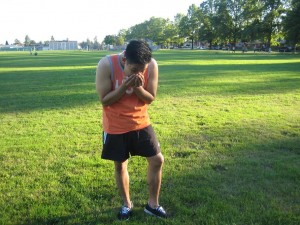Many believe that the winter season can provide relief to individuals who suffer from allergies. It is sad to note that in some areas, there are trees that pollinate during the winter season, triggering some of the worst allergy symptoms. The trees included in the cedar, cypress and juniper family are known for triggering cedar fever.
It is important to note that cedar fever refers to the allergy symptoms triggered by pollen from juniper, cedar or cypress trees. These symptoms are similar to hay fever such as runny nose, sneezing, itchy nose and nasal congestion. Many individuals will also experience eye allergies while some experience worsening asthma symptoms such as cough, wheezing, chest tightness and shortness of breath.
What is mountain cedar?
Mountain cedar is basically a type of juniper tree that pollinates in the winter season from December up to March. It is the only major pollen present during the winter in areas where it grows. Remember that mountain cedar is capable of releasing large amounts of pollen in which the tree appears to be on fire.

In some areas, there are interrelated species of juniper, cedar and cypress trees that are capable of triggering winter or spring allergies. Since the pollen is strikingly comparable within this family of trees, an individual who is highly sensitive to mountain cedar pollen is also allergic to pollen from cypress and juniper trees.
Usual symptoms
Allergic rhinitis
Mountain cedar is known to trigger serious nasal allergies called allergic rhinitis. This condition is quite common and the usual reason for nose and sinus issues. Young adults and children face a higher risk for this disease but even older adults and elderly can experience the symptoms.
Allergic rhinitis is described as the inflammation and irritation of the nasal passages due to seasonal and year-round allergens. The symptoms include runny nose, sneezing, nasal congestion, postnasal drip and itching of the nose.
Allergic conjunctivitis
It is important to note that mountain cedar can also cause a severe eye allergy symptom such as allergic conjunctivitis. The condition is characterized by itchy, watery and red eyes. Remember that both eyes are usually affected but one eye might be symptomatic than the other.
Asthma
Asthma is a chronic lung condition that causes the airways to inflame which leads to narrowing. The muscles surrounding the airways become highly sensitive and can easily react to allergens such as pollen and other irritants. Remember that asthma can be a life-threatening condition. The indicative symptom includes wheezing, coughing, chest tightness and shortness of breath. Take note that not all individuals who have asthma will experience these symptoms. Some with asthma might only have cough.
If asthma continues to worsen, the airborne pollen is responsible, especially when in large concentrations in the air. Always bear in mind that the large numbers of mountain cedar is known to trigger the asthma symptoms among predisposed individuals.
